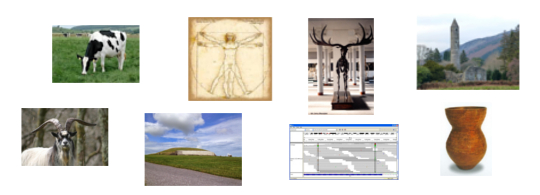IRISH BLOOD TRANSFUSION SERVICE ADDRESS:
Red Cell Referral Laboratory
Irish Blood Transfusion Service
National Blood Centre
James’s Street
Dublin 8
Ireland
RESEARCH INTEREST:
The Genetics of Hereditary Haemochromatosis:Type 1 or HFE hereditary haemochromatosis (OMIM 235200) is the most common genetic disorder in North West Europe (or populations with significant North Western European influence). The HFE gene encodes a HLA Class I type molecule. In approximately 95% of cases of HH, patients are homozygous for the HFE 845G>A mutation (commonly known as the C282Y mutation) – the remaining cases are usually the result of homozygote H63D or compound heterozygote C282Y/H63D mutations. The HFE-C282Y mutation disrupts b2-micorgloublin binding ultimately resulting in increased iron absorption (through hepcidin dysregulation). Over time this can lead to deposition of excess iron in parenchymal tissues, resulting in chronic fatigue, arthralgia, diabetes, cirrhosis, and potentially hepatic carcinoma (if left untreated). Treatment is simple and effective – regular phlebotomy reduces iron levels to normal, and elevates practically all of the associated morbidity.
Although HH would appear to be a good candidate for population screening, disease penetrance is surprisingly low at approximately 15% or so. At this level of penetrance screening populations for HFE-C282Y and HFE-H63D mutations introduces significant issues for individuals found to carry mutations, including insurance and psychological concerns. However with an estimated 24,000 haemochromatosis patients interacting with the Health Service Executive, and a significant number undetected, the need for an effective screening service is evident.
Apart from known environmental factors (e.g. alcohol intake, high iron diet), it is likely that there is significant genetic involvement. To date a number of allelic variants have been described that appear to modulate iron loading (e.g. TF, BMP2, TNF, TLR4, TMPRSS6). However, these are rare or account for approximately 30% of iron loading seen in HH patients.
The IBTS provides phlebotomy services for donor-eligible HH patients in a dedicated clinic in Stillorgan, currently dealing with approximately 600 patients. We hope to investigate these patients (along with indigenous controls) by high density exome-genotyping and next-generation sequencing, in an attempt to identify the “missing heritability” which may influence the level of disease progression in HFE-C282Y individuals.
Part of my study will also involve the investigation of the geographical distribution of HFE mutations in Ireland. Apart from one other incidence, all studies to date indicate that the C282Y mutation arose on a chromosome 6 with the same gene haplotype. We will investigate the haplotype of Irish HFE-C282Y chromosomes. The Y chromosome haplogroup R1b-M269 will also be investigated, in particular the S116 and S145 subclades, to determine if the origin of Irish mutant HFE genes originated from the Iberian Peninsula or elsewhere.
Molecular Biology of Blood Groups:I also have an interest in the molecular biology of blood groups. At the Irish Blood Transfusion Service, I am currently in the process of establishing a blood group genotyping service for patients and donors. For ante-natal patients, we are in the early stages of establishing a non-invasive pre-natal diagnosis (NIPD) service for determining fetal blood groups from cell-free fetal DNA in the maternal peripheral blood. This is very useful in the management of pregnant RhD negative women (with anti-D), who have the potential for causing haemolytic disease of the fetus or newborn (HDFN).
EDUCATION & QUALIFICATIONS:
2012-present: PhD Candidate, Trinity College Dublin (Part time)
Thesis title :The Genetics of Haemochromatosis in Ireland
2001-2002: MSc Molecular Medicine, Trinity College Dublin
Thesis title :Low Molecular Weight Heparin inhibits transcription and expression of TLR4 in human Monocytes: A possible mechanism of heparin in the treatment of inflammatory bowel disease.
Supervisor: Dr. Wendy Livingstone (Trinity College Dublin)
1991-1996: BSc (Hons) Applied Science, DIT Kevin Street/Trinity College Dublin
Thesis title: Characterisation of Clostridium difficile by PCR and RFLP
Supervisor: Dr. Maja Rupnik (from University of Ljubljana at Université Catholique de Louvain, Belgium)

PUBLICATIONS:
Farrelly A, Doyle B, Murphy C, Lambert M, Crumlish J, Fitzgerald J.
Quantitation of Anti-c by Continuous Flow AutoAnalyzer and by Flow Cytometry: A Comparison.
Transfusion Medicine 2011;21(Suppl. 1): 25-26.
Lambert M, Fitzgerald J, Cavanagh G.
Evaluation of Gen-Probe’s Luminex xMAP-based Blood Group Genotyping Kits using previously genotyped donor DNA.
Transfusion Medicine 2011;21(Suppl. 1): 25.
Poole J, Thornton NM, Tilley L, Lambert M, Mulvany L, Daniels G.
Novel high incidence antigen in the Diego blood group system (DISK) and clinical significance of anti-DISK.
Vox Sanguinis 2010;99(Suppl. 1):54-55.
Murphy L, Crumlish J, Keenan M, Lambert M, Fitzgerald F.
Investigation and management of a high frequency Rh antibody in a pregnant Sickle Cell Disease (SCD) patient
Transfusion Medicine 2009;19(Suppl. 1):23.
O’Connor M, Clarke O, Lambert M, Fitzgerald J.
The evaluation of BioArray Solutions BeadChip microarray system for human erythrocyte antigen genotyping of Irish blood donors.
Transfusion Medicine 2009;19(Suppl. 1):10-11.
PRESENTATIONS:
Lambert M.
The Complexities of RhD Investigations in Ireland
Lecture at Hospital Liaison Meeting, IBTS, March 2006.
Lambert M.
Molecular Basis of Blood Groups.
Lecture for MSc Molecular Pathology (DIT/TCD),May 2010.
Lambert M.
Use of Molecular Technology in Transfusion Medicine.
Presentation at IEQAS Participant’s Conference, Dublin, October 2010.
Lambert M.
Novel Antibody/Antigen in the Diego Blood Group System – Anti-DISK.
Lecture at TTSAB-IBTS Meeting, IBTS, Dublin, May 2011.

PROFESSIONAL MEMBERSHIPS:
Fellow of the Academy of Medical Laboratory Science [FAMLS] www.amls.ie
Member of Institute of Biomedical Science [MIBMS] www.ibms.org
Member of the International Society of Blood Transfusion www.isbtweb.org
Member of the Irish Society of Human Genetics irishsocietyofhumangenetics.blogspot.ie

